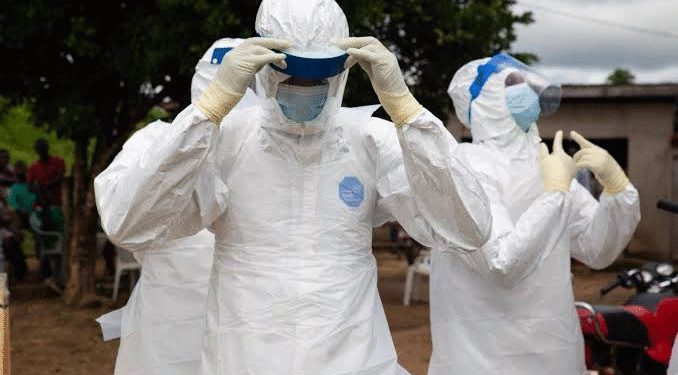The Federal Government has stepped up monitoring and screening at all entry points into Nigeria following the outbreak of Ebola Virus Disease (EVD) in the Democratic Republic of Congo (DRC).

Director of Port Health Services at the Federal Ministry of Health and Social Welfare, Dr. Akpan Nse, confirmed the measures in an interview with Saturday PUNCH on Friday. He disclosed that additional staff had been recruited to strengthen border surveillance, with support from the World Health Organisation (WHO).
Health authorities in the DRC declared an outbreak of Ebola in Kasai Province, with 28 suspected cases and 16 deaths — including four health workers — recorded as of September 5, 2025. Laboratory tests in Kinshasa confirmed the Ebola Zaire strain as the cause.

Dr. Nse said Nigeria remains at risk due to high travel volumes between both countries, but assured that precautions were in place.
“We have intensified surveillance at airports, seaports, and land borders. All travellers coming from Congo are screened, and their medical history is collected. Even passengers who only transited through Congo are screened on arrival in Nigeria,” he explained.
He added that thermal scanners had been reactivated and maintained with support from private organisations, while more staff had been deployed nationwide.
Meanwhile, WHO has released $500,000 from its Contingency Fund for Emergencies to support response efforts in the DRC. Director-General Dr. Tedros Adhanom Ghebreyesus said staff had been deployed to Kasai to assist with contact tracing, surveillance, treatment, and vaccination. Over 2,000 doses of Ebola vaccine, already prepositioned in Kinshasa, will be used to protect health workers and close contacts.
Nigerian health experts have urged the country not to lower its guard. Dr. Oladipo Kolawole, Associate Professor of Infectious Diseases at Adeleke University, Osun State, said lessons from Nigeria’s past experience with Ebola should guide preparedness. He stressed coordination among government agencies and strict monitoring of travellers.
Similarly, Dr. Moses Adewumi of the University College Hospital, Ibadan, emphasised early detection at entry points, warning that “surveillance must be tightened to prevent community transmission.”
Head of the Infectious Diseases Unit at Lagos University Teaching Hospital, Dr. Iorhen Akase, noted that Ebola is only contagious when symptomatic. He urged Nigerians to be vigilant at the community level and report suspicious illnesses promptly.
Ebola is a rare but severe viral disease with a high fatality rate. It spreads through direct contact with the bodily fluids of infected persons or contaminated materials, as well as contact with infected animals such as fruit bats.
The DRC has experienced 15 previous outbreaks since the virus was first identified in 1976, with the last one recorded in Equateur Province in 2022.









